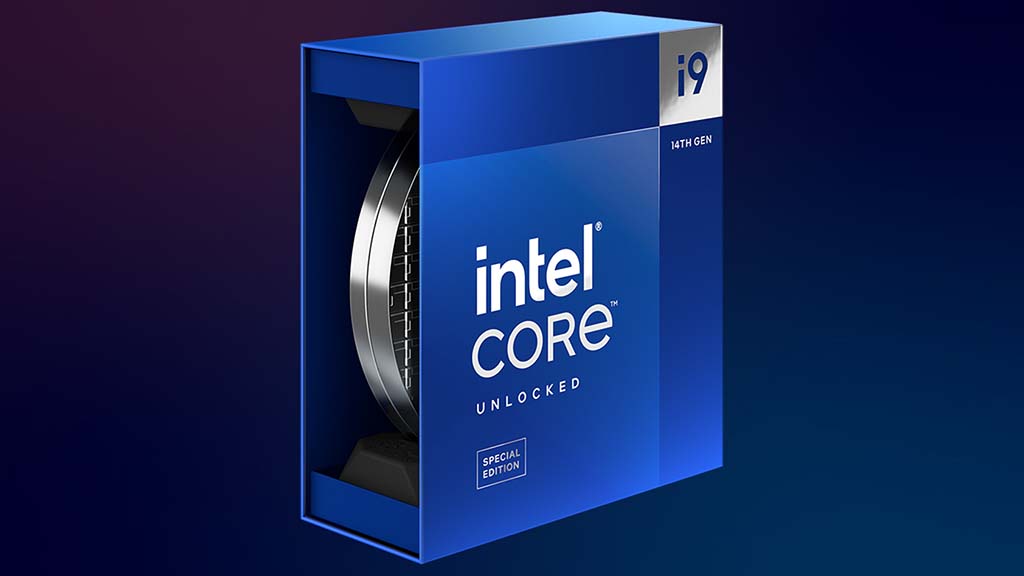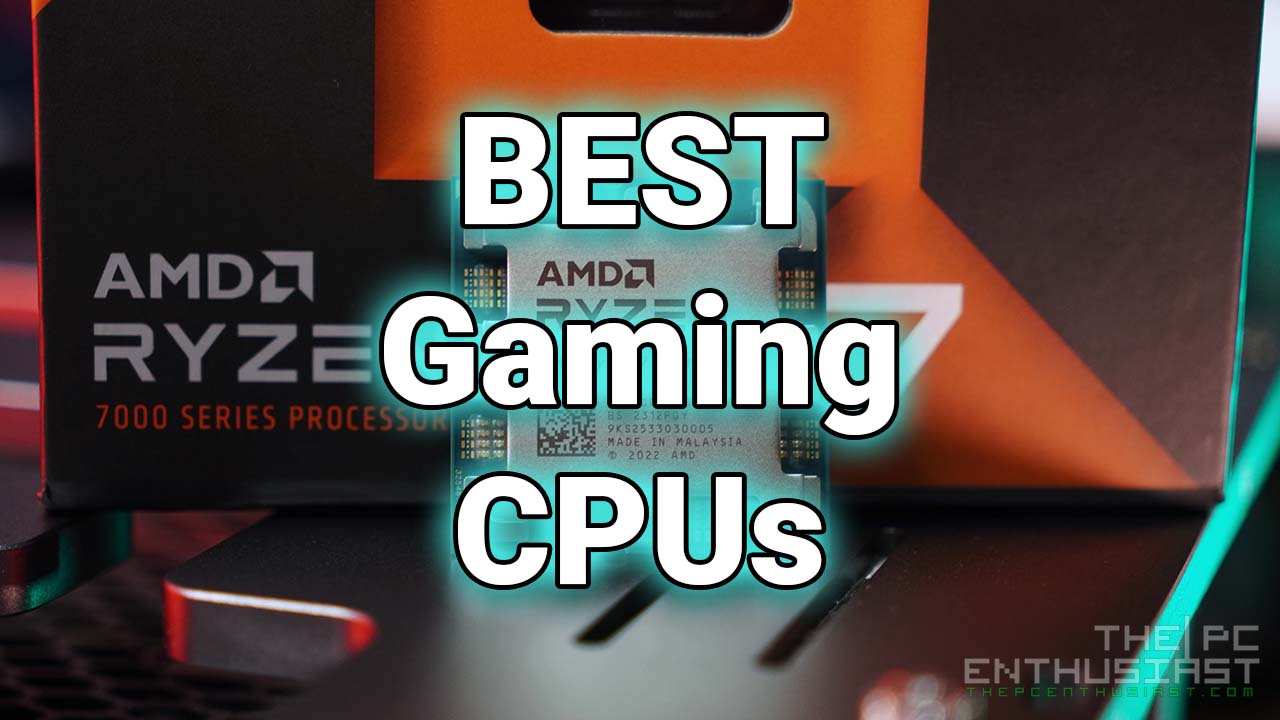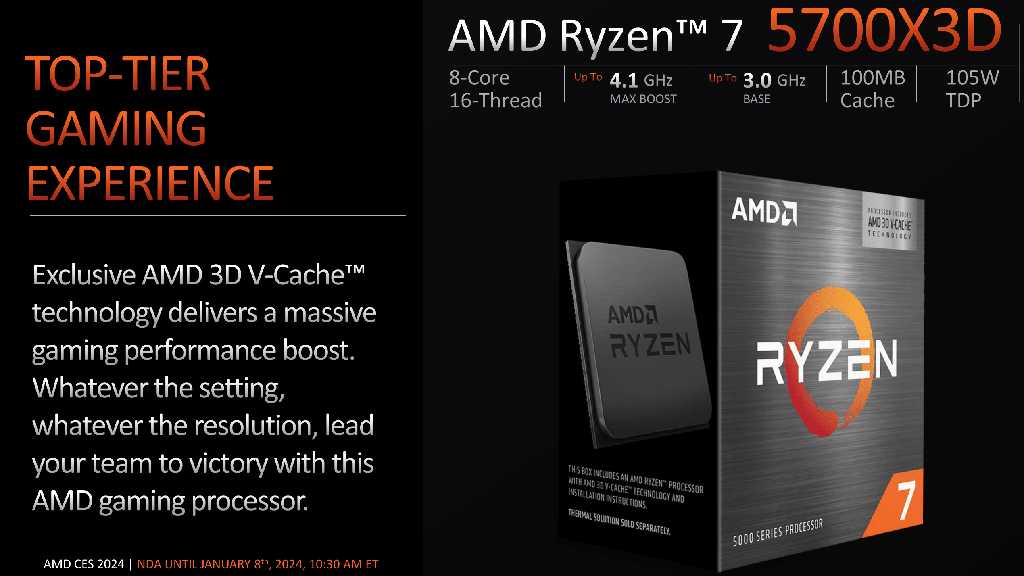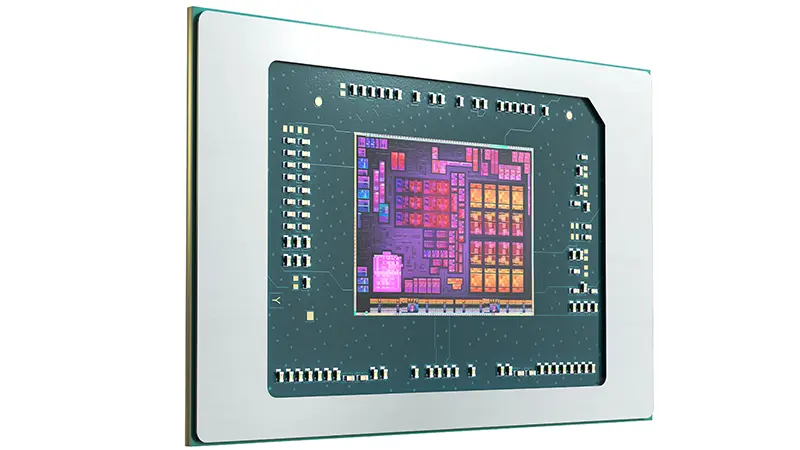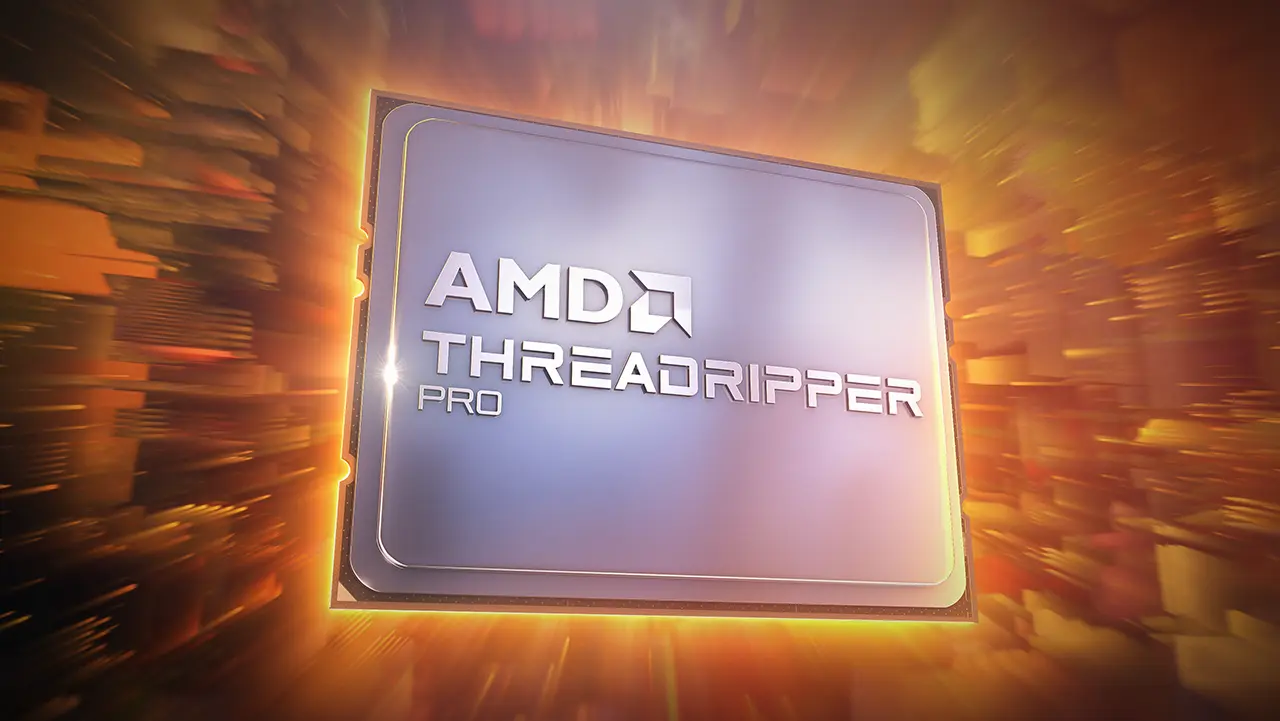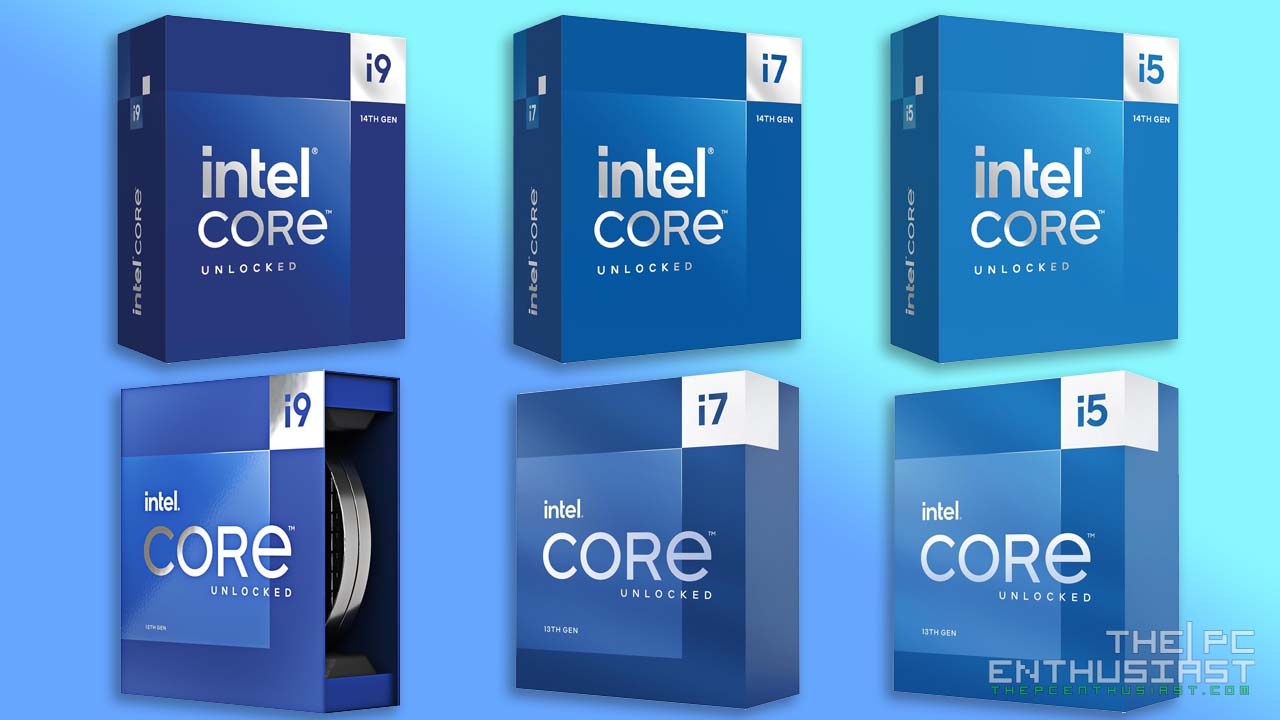The reviews for Intel’s 11th gen Rocket Lake processors are now up and it is not looking good for Intel. Just like what Steve from GamersNexus said: “it’s a waste of sand“. Let’s talk about the Intel Core i9-11900K vs AMD Ryzen 5800X and also the Core i7-11700K, based on the recent reviews. If you are in the market for the latest, fastest, or “bang for buck” CPU right now, which of the three processors would I recommend? My answer, none of them. Find out why…
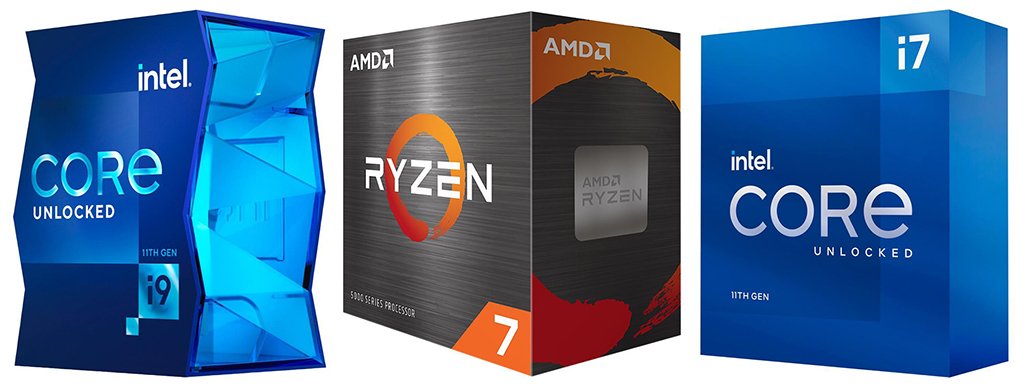
Should You Buy Intel’s 11th Gen CPU? Or Get AMD’s Ryzen 5000 CPU?
The answer to that question is not as easy as saying yes or no. It depends actually. But based on the majority of the reviews out there suggests that we should avoid the i9-11900K. First time to see a flagship Intel CPU that has a similar core and thread count to an i7. The Core i9-11900K and i7-11700K are similar when it comes to core and thread count. Intel just made a few changes or differences in clock speeds, how the turbo boost behaves, and their price. This is to (artificially) segment these processors.
As you can see from the slide below, the entire Core i9 and Core i7 11th gen processors all have 8 cores with 16 threads.
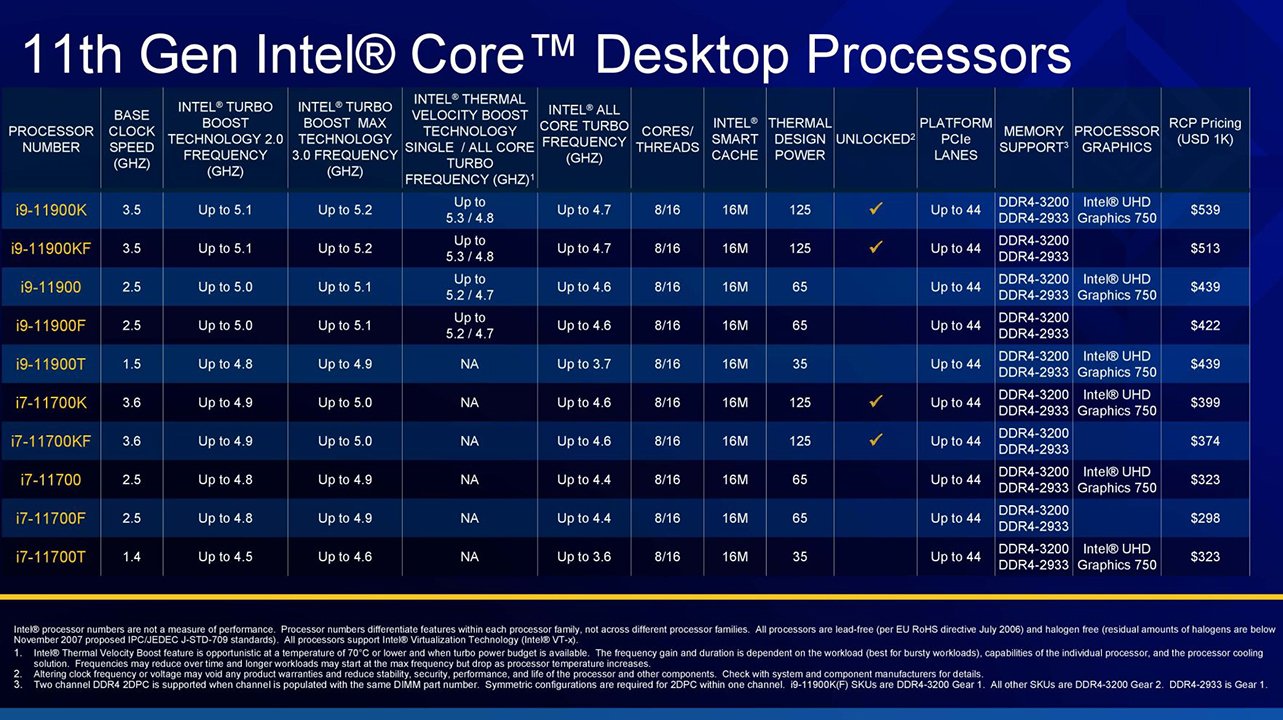
Meanwhile, AMD’s Ryzen 5000 series CPUs have varying core and thread count. For example, the 5600X has 6 cores, 12 thread; the 5800X has 8 cores / 16 threads; and the 5900X has 12 cores / 24 threads. You can check out the rest of their differences from the specifications table below.
Going back to the question above, I’d avoid the Core i9-11900K since it’s somewhat similar to the Core i7-11700K. The current retail price difference between the two CPUs is huge, around $619 vs $405. So, it’s a win then for the 11700K, right?
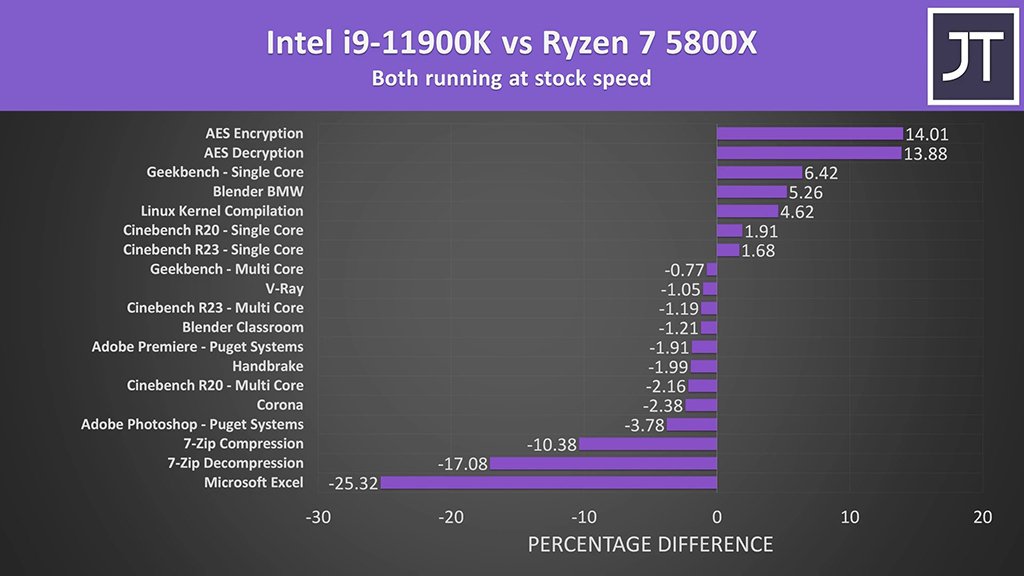
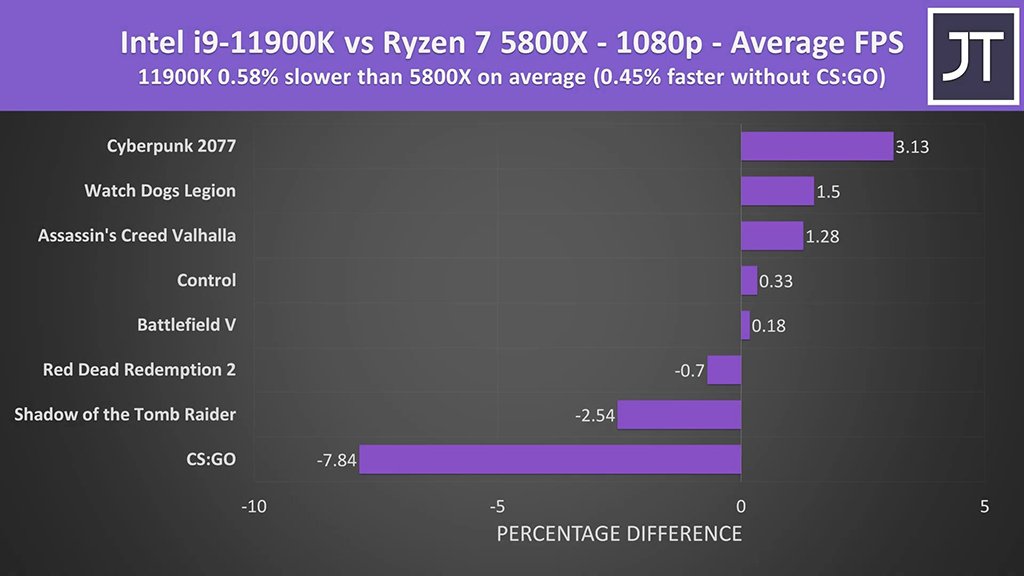
Source: Jarrod’s Tech
Well, not quite. The closest competitor of the i7-11700K is the Ryzen 5800X. And the Ryzen 7 5800X tends to win in most of the benchmarks, both productivity, and in gaming. The 5800X is a bit more expensive though, currently priced at $449. So, if you want a slightly faster and more efficient CPU, but slightly expensive, the Ryzen 7 5800X is the obvious choice.
The Better Option Right Now Might Be This CPU
If you want an Intel system due to some features that it offers; the i7-11700K is okay but the previous generation i9-10850K is better. Why? The i9-10850K is a 10 core, 20 thread processor and performs very close or similar to the Core i9-10900K.
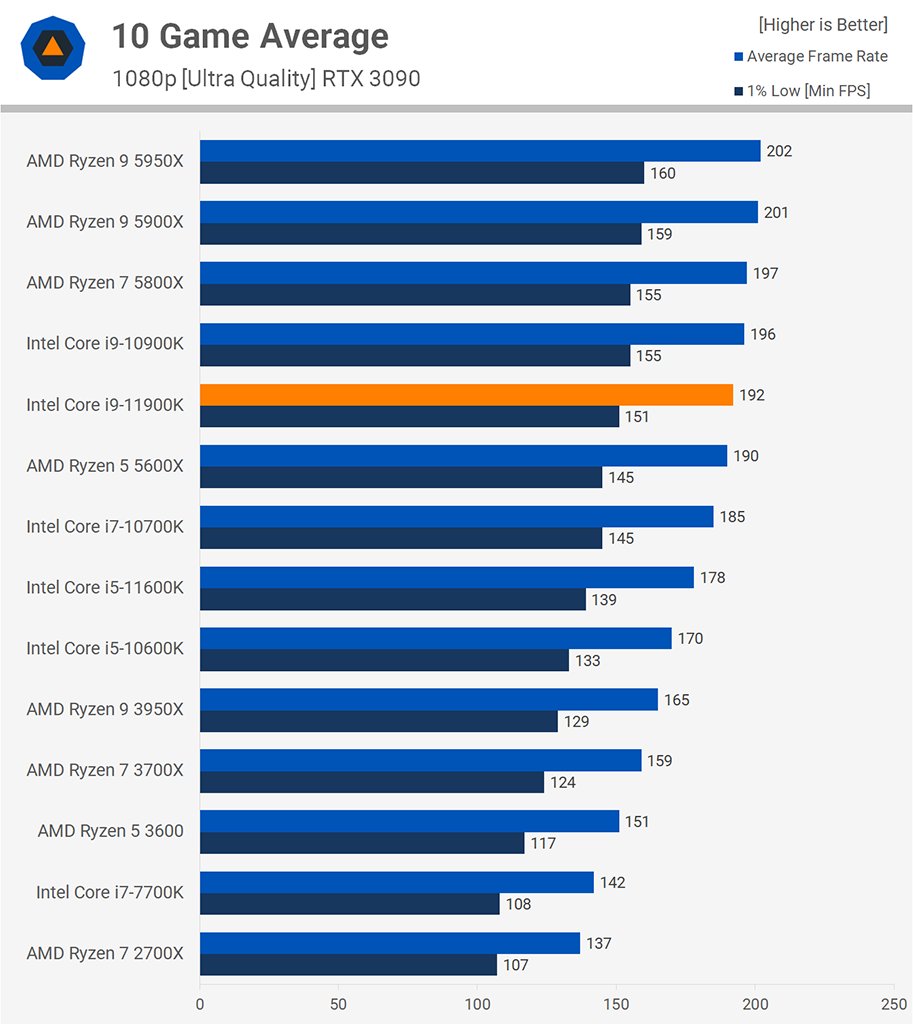
Source: Techspot
We’ve seen in reviews that the Core i9-10900K also beats the latest Core i9-11900K in some or more benchmarks. And currently, the Core i9-10850K is priced at around $396, while the Core i9-10900K retails for around $460. Obviously, the Core i9-10850K is the better deal.
However, do note that the 10th generation Intel Core processors DO NOT feature PCIe 4.0. But if you don’t have any plans on getting a Gen 4 NVMe SSD, you’ll be fine. You can still use the latest RTX 30 series and RX 6000 cards since they work on PCIe 3.0 as well.
Is the 11th Gen Intel CPU “Future-Proof”?
The short answer is no. The Intel 400/500 series chipset, with socket LGA1200 and the 10th/11thgen CPU are the end of the line for this generation. The upcoming Alder Lake processors reported to be released late this year or early next year, will use a different socket (LGA1700); and are said to have support for PCIe 5.0 and DDR5 memory.
AMD’s Ryzen 5000 (Zen3) is also the last for this generation. The upcoming Zen 4 CPUs are also reported to use a different socket (AM5) and will have support for DDR5 memory and PCIe 5.0 as well.
However, this does not mean that any software, application, or games you use/play today with the current hardware generation will no longer work or will perform poorly once the new hardware comes out. Upcoming hardware is expected to be fast. But it doesn’t mean that the one you have now or will buy will suddenly become slow.
So, upgrading or buying a hardware or desktop PC today is not a bad idea, especially if you need one right now.
11th Gen Rocket Lake vs AMD Ryzen 5000 Zen 3 Specs Comparison
| i9-11900K | i7-11700K | i5-11600K | 5900X | 5800X | 5600X | |
|---|---|---|---|---|---|---|
| Fab Process | 14nm+++(?) | 14nm+++(?) | 14nm+++(?) | 7nm | 7nm | 7nm |
| Architecture | Rocket Lake | Rocket Lake | Rocket Lake | Zen 3 | Zen 3 | Zen 3 |
| Socket | LGA 1200 | LGA 1200 | LGA 1200 | AM4 | AM4 | AM4 |
| Cores/Threads | 8 / 16 | 8 / 16 | 6 / 12 | 12 / 24 | 8 / 16 | 6 / 12 |
| Base Clock | 3.5 GHz | 3.8 GHz | 3.9 GHz | 3.7 GHz | 3.8 GHz | 3.7 GHz |
| Max. Boost Clock | 5.3 GHz | 5.1 GHz | 4.9 GHz | 4.8 GHz | 4.7 GHz | 4.6 GHz |
| All-Core Max Boost | 4.8 GHz | 4.7 GHz | 4.6 GHz | |||
| TDP | 125W | 125W | 125W | 105W | 105W | 65W |
| iGPU | UHD Graphics 750 Xe 32EU | UHD Graphics 750 Xe 32EU | UHD Graphics 750 Xe 32EU | None | None | None |
| Memory Support | DDR4-3200 | DDR4-3200 | DDR4-3200 | DDR4-3200 | DDR4-3200 | DDR4-3200 |
| L3 Cache | 16MB | 16MB | 12MB | 64MB | 32MB | 32MB |
| PCIe Support | Gen 4.0 x20 | Gen 4.0 x20 | Gen 4.0 x20 | Gen 4.0 x24 | Gen 4.0 x24 | Gen 4.0 x24 |
| PCIe Lanes | up to 44 | up to 44 | up to 44 | up to 24 | up to 24 | up to 24 |
| Retail Price | $614 | $419 | $270 | $549 | $449 | $299 |
Which Is More Efficient – Intel Rocket Lake or AMD Zen 3?
This is an easy one. If you are concerned about the power draw or power consumption, AMD’s Ryzen 5000 CPUs are far more efficient than Intel’s 11th gen or 10th gen CPUs. The difference is simply substantial. Intel’s latest 11th CPUs, like the Core i9-11900K and i7-11700K, can draw more than 200W without the limiters enforced.
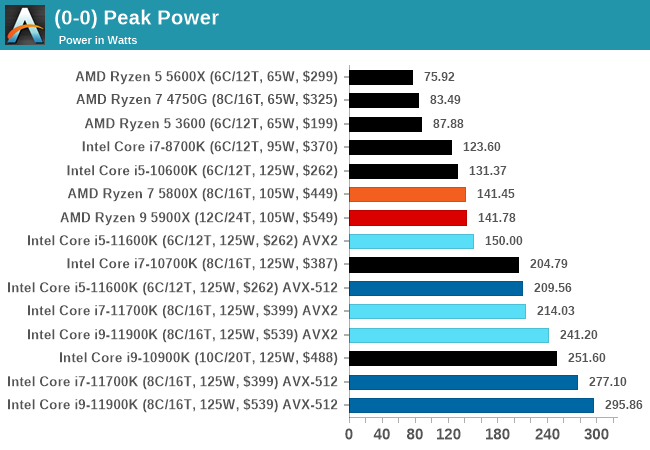
Source: Anandtech
Meanwhile, AMD’s Ryzen 5000 CPUs, like the 5900X or 5800X usually draw 140W and below, depending on the workload. This is thanks to the 7nm fabrication process, which is more efficient than Intel’s 14nm++++(?) process.
11th Gen Intel Rocket Lake Gen4 (SSD) Performance
One of the highlights of the 11th Gen CPUs is the support for the PCIe 4.0 interface. This also means Z590 motherboards and some Z490 motherboards are now able to support M.2 Gen4 NVMe SSDs. You do need to use one of the 11th Gen CPUs since the PCIe 4.0 is tied to the CPU.
Even if you have a Z590 motherboard, but you pair it with a 10th gen CPU, PCIe 4.0 will not be enabled. Although, if I am not mistaken, you can still take advantage of Thunderbolt 4 and USB 3.2 Gen 2×2 interface since they do not rely on the CPU.
Unfortunately, most of the early reviews didn’t cover the performance regarding the Gen4 SSDs. And there are some reports that the performance of Gen4 SSDs on an Intel Z590 motherboard powered with an 11th gen Intel CPU is lackluster compared to AMD’s. I’ll test this soon once I got my 11th gen CPU and Z590 motherboard.
What CPU Is The Better Deal?
TL;DR, I’d recommend the Core i9-10850K since it’s the cheaper CPU. It has 10 cores, 20 threads and performs similar to an i9-10900K. There’s only a 100MHz speed difference based on specs.
The next on my list is the i9-10900KF but this doesn’t have a built-in iGPU. Followed by the 5800X or 5900X and lastly the 5950X. Unfortunately, the Ryzen 9 5900X and 5950X are very rare and usually out of stock at this time.
If you (really) want the latest Intel 11th Gen CPU, the better choice would be the i5-11600K. It’s cheaper and performs similarly or a hairline behind the 5600X (depending on the scenario). Although, it still consumes more power than the 5600X. The 11700K is okay, just not the i9-11900K. I think the i9-11900K is simply not worth it and perhaps (one of the) worst “flagship” CPU to date.

